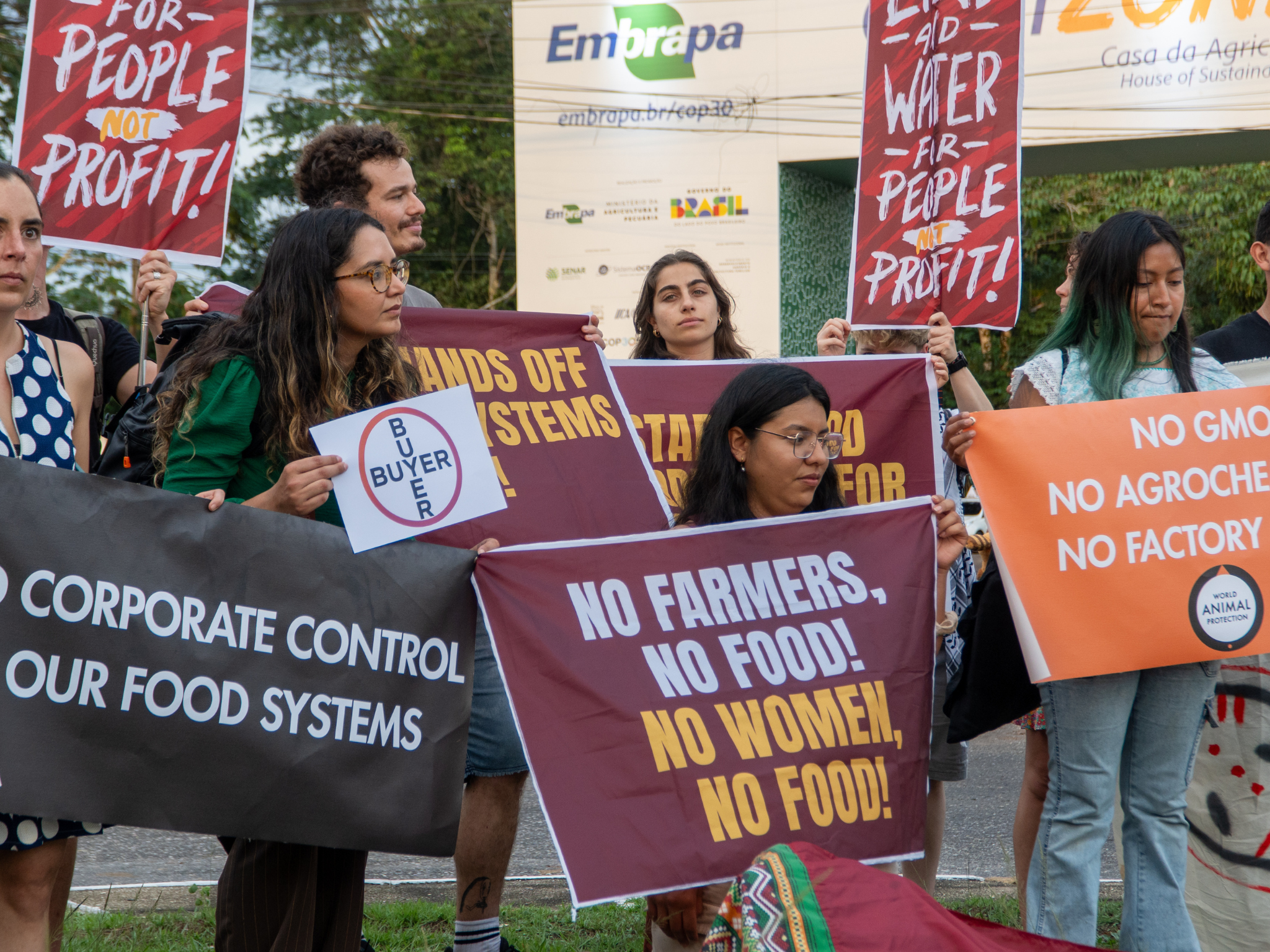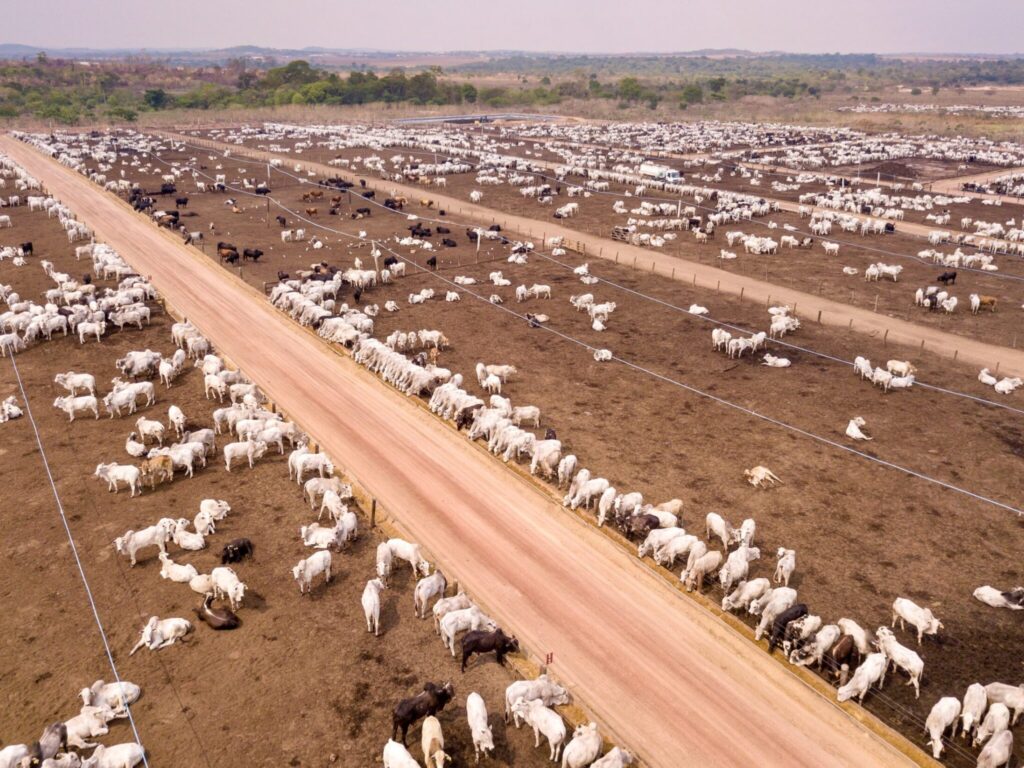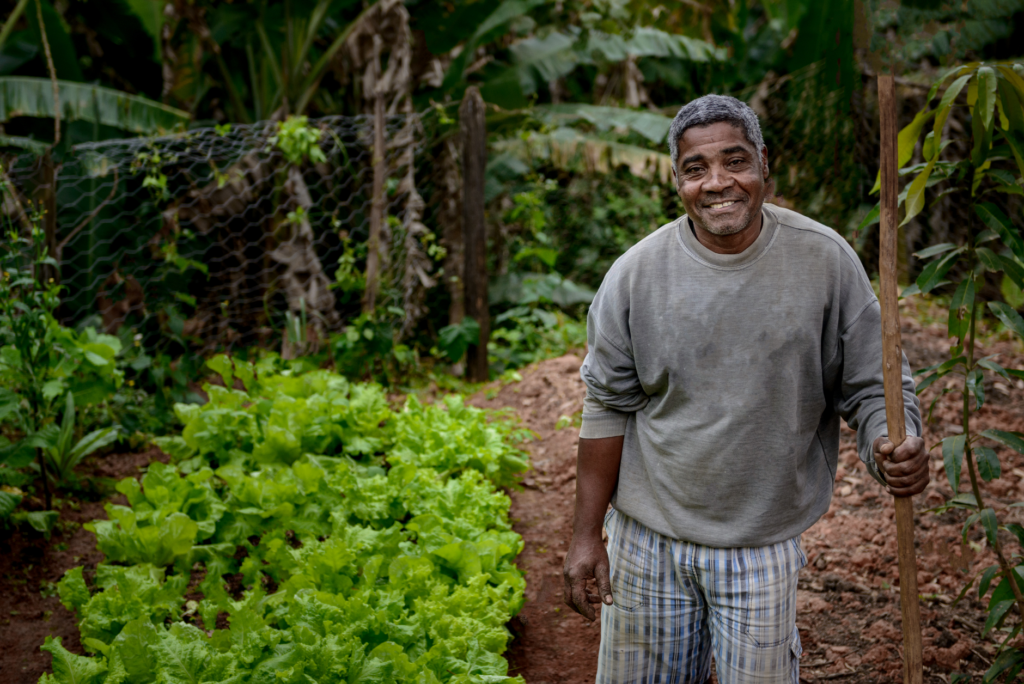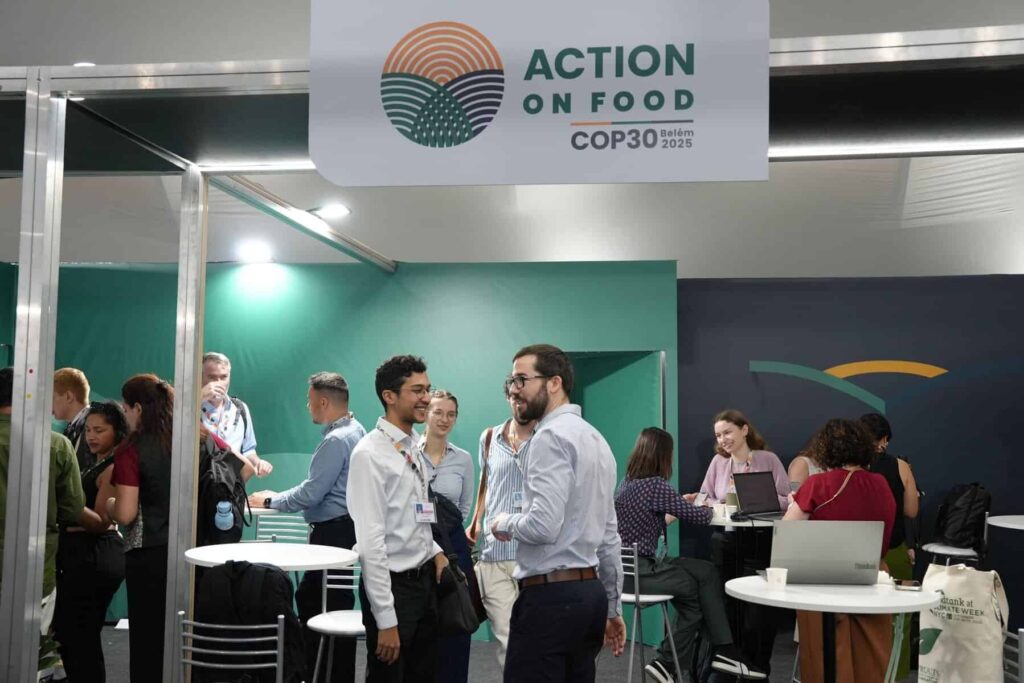
Aline Baroni, country director of ProVeg Brasil, makes a case for why COP30 could bring about a pivotal shift in the fight for a better agrifood system.
Brazil’s ecosystems are a kaleidoscope of life.
According to UNEP, the country ranks at the top of a small group of ‘megadiverse’ regions, hosting an estimated 15-20% of the world’s species across its diverse ecosystems, from rainforests and wetlands to savannas and coasts. Iconic species such as jaguars, sloths, macaws and capybara are native to Brazil, with thousands of other naturally occurring flora and fauna contributing to its ecological richness.
But this abundance is under siege, and the culprit is on our plates. A report from the UNEP and Chatham House shows that agriculture, and notably the expansion of pastures, is threatening 86% of species at risk of extinction.
In Brazil, the meat industry is devouring the planet. Livestock production drives a staggering 90% of Amazon deforestation and spews over 60% of the nation’s greenhouse gas emissions. The damage comes from both ends: methane released through enteric fermentation, and deforestation to clear pastures and grow animal feed. It’s an industrial system that consumes land, water, and crops at a colossal scale, while flooding the atmosphere with methane and nitrous oxide.
With Brazil being one of the top meat exporters in the world, the hunger for animal products in Europe and globally may be directly fueling the destruction of crucial ecosystems that sustain human life on our planet.
But COP30, hosted in the Amazonian city of Belém, offers a chance to put how we grow and produce our food under the microscope. Sitting at the intersection between nature, agriculture and local life, Brazil’s COP30 embodies both the promise and the peril of our planet’s future: a frontline where biodiversity clashes with the global struggle to feed our world.
The impact of industrial livestock

For decades, deforestation in the Amazon Rainforest and the Cerrado savannah – driven largely by industrial agriculture – has marched on with little resistance. Millions of hectares of forest have been cleared for cattle ranching or to grow soybeans destined for animal feed across the world.
The process is as brutal as it is efficient: in order to clear the land, powerful fires are set, destroying thousands of plants, animals and ecosystems. Every tree that falls and every patch of habitat that disappears takes with it more than just greenery – it takes countless forms of life. A recent study found that in just five years, the Amazon may have lost up to 23.7 million hectares of forest, an area almost as large as the entire United Kingdom.
But the devastation doesn’t stop at deforestation – industrial animal agriculture is also one of the biggest climate emitters. Upwards of 15% of direct greenhouse gases are pumped out by the livestock sector, including approximately 32% of all global, human-caused methane emissions. This puts the Paris agreement’s goal to limit global warming to no more than 1.5°C above pre-industrial levels further out of reach.
The fallout is environmental as well as social. Traditional communities, whose livelihoods depend on the land, are being displaced as pastures expand and profits take precedence. The global appetite for cheap meat is driving not only ecological collapse, but also deepening inequality and poverty in Brazil.
Meanwhile, in wealthier nations, excessive consumption of animal-sourced foods is fuelling a public health crisis – with the EAT-Lancet Commission estimating that a global shift toward plant-rich diets could prevent up to 40,000 premature deaths every day.
Towards a just food transition

But none of this is inevitable. With courage and vision, leaders can turn the tide, crafting policies that protect nature, restore biodiversity and strengthen communities.
Yet the solutions must be as diverse as the planet they aim to save. We must think of our food system as a complex and interconnected arrangement of actors, interests and variants. Cutting meat production and consumption is a crucial lever, especially in wealthy countries, and how to do it in a fair and nuanced manner should be at the core of the debate.
On the production side, switching away from livestock must bring better opportunities and a higher quality of life for farmers; on the consumption side, promoting plant-rich diets must encourage healthy eating and food justice.
In Brazil, the recently launched Cultiva Project assists farmers in transitioning from livestock farming to plant-based agroforestry, showing what a just transition could look like. The pilot works hand-in-hand with rural producers to design transition plans that honour local sociobiodiversity while unlocking new opportunities, including income increase.
This isn’t simply a strategy for cutting meat consumption; it’s a blueprint for shared prosperity. By giving farmers the knowledge, tools, and support to adopt sustainable and resilient practices, projects like Cultiva are turning agriculture from a driver of devastation into a force for regeneration.
Brazil also has the largest school meals program in the world, PNAE. Working with municipalities, state governments and schools, PNAE aims to ramp up veggie and legume intake at the early stages of life when eating habits are formed, showcasing another promising way of promoting sustainable, healthy plant-rich diets.
When sustainable farming and school meals come together, a perfect cycle is created – especially in Brazil, where 45% of ingredients used in schools must come from smallholder, family farmers. By encouraging farmers to produce more veggies, and children to consume them, these initiatives have the potential to reduce the carbon footprint of the food system almost immediately, and on a large scale, while promoting health and a just transition.
Looking to COP30

But these actions are just a drop in the ocean when considering the damage already caused. There needs to be bold, international policy and non-state action to accelerate the transition to resilient and equitable food systems, across the entire value chain.
The recent Belém Declaration on Plant-Rich Diets, signed by dozens of NGOs, MEPs and regional governments, such as the City of West Hollywood, California and Oxford City Council proposes a simple solution. It calls on national governments to promote healthy and sustainable diets through the drafting and implementation of Action Plans for Plant-Based Foods.
This declaration will be presented at COP30, where there are numerous opportunities to elevate the role of food systems in tangible climate action. Countries are on a deadline to submit their updated Nationally Determined Contributions, and there is hope that progressive nations will incorporate food-related targets, such as reducing methane emissions from agriculture.
Brazil’s leadership knows that the moment for bold action on food has arrived. The Presidency’s Action Agenda for this year makes that clear. Its third pillar, Transforming Agriculture and Food Systems, calls on those beyond the negotiating tables, from civil society to business and investors, to step up. That’s why the Action on Food Hub Pavilion has united the community at COP30, to reshape food systems that are not only productive, but also adaptive, equitable, and restorative – for people and the planet.
The planet is entering a new reality – one marked by the first of several catastrophic, potentially irreversible climate tipping points. Against this backdrop, COP30 could be our last and best chance to forge solutions that deliver real, lasting change.
The momentum built by the food movement in recent years has shown what’s possible; now it’s time to turn that progress into policy. Bold, decisive action can still ensure that Brazil – the beating heart of the world’s biodiversity – remains a thriving sanctuary for generations to come.
The post Opinion: COP30 Will Be the Opportunity of A Lifetime to Improve Our Food Systems appeared first on Green Queen.
This post was originally published on Green Queen.